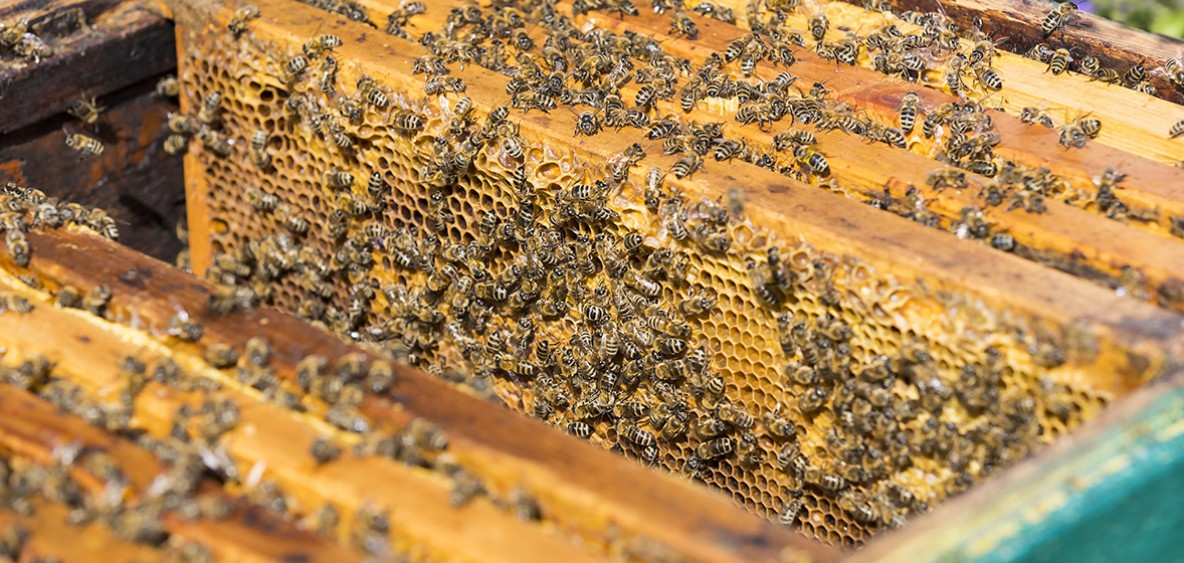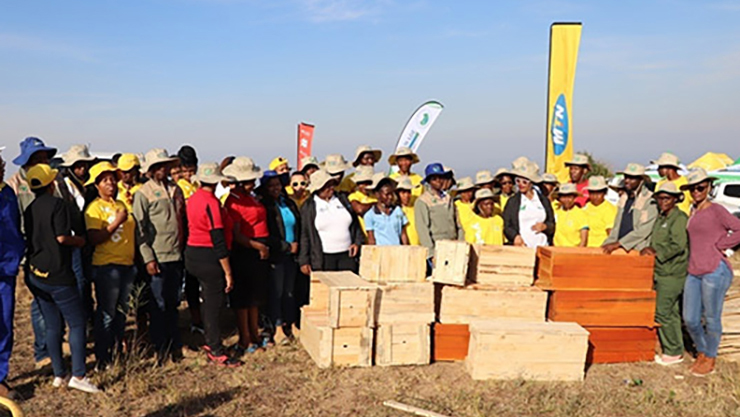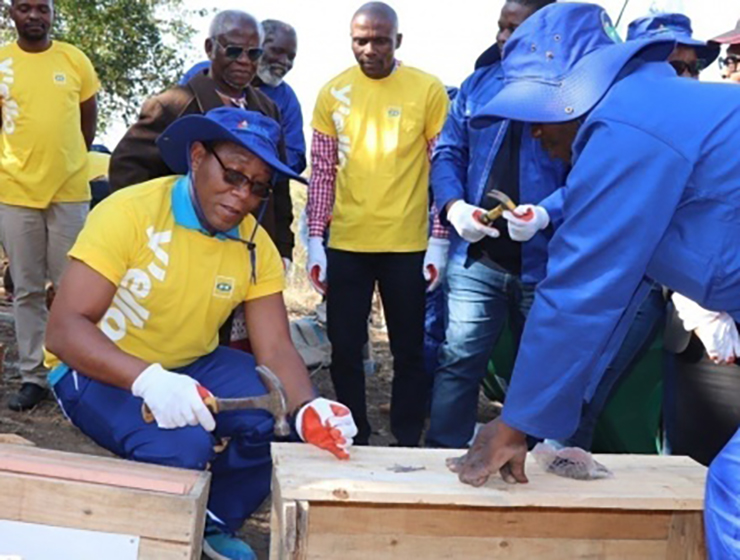
Through the ‘21 Days of Y’ello Care’ initiative, 100 youth entrepreneurs were educated about the key elements of honey production and trained in commercial beekeeping in Eswatini.
In Eswatini, Resilient Food Systems is working to improve the livelihoods of smallholder farmers through the promotion of diversified, climate-resilient agricultural practices. The RFS Eswatini project ‘Climate-Smart Agriculture for Climate-Resilient Livelihoods’ (CSARL) is closely linked with IFAD’s Smallholder Market-Led Programme, which strengthens market linkages and scales up sustainable agricultural practices. Both projects focus on harnessing the sustainable use and management of natural resources for market-led economic growth in the agricultural sector.
These objectives cannot be met without addressing the role of youth in reshaping the agricultural sector. In Eswatini, youth unemployment is roughly 44%. Youth and women are disproportionally impacted by developmental challenges and are particularly vulnerable to inequality, poverty, malnutrition, violence and poor health outcomes.
As part of efforts to build resilience within the youth population and reduce the high rate of youth unemployment in Eswatini, RFS Eswatini partnered with MTN, a mobile service provider, and its flagship corporate responsibility initiative, ‘21 Days of Y’ello Care’, to empower 100 youth entrepreneurs through the creation of sustainable, youth-led beekeeping enterprises. The initiative aims to enhance food security, youth employment, and youth incomes through the construction of locally-run apiaries in five chiefdoms - Magele, Ndushulweni, Mphumakudze, Ngobolweni and Ndlinilembi.

Through the
initiative, 100 youth entrepreneurs were educated about the key elements of
honey production and trained in commercial beekeeping. The youth farmers will
continue to receive supervision and mentoring from RFS Eswatini in
collaboration with partners, Bulembu Ministries and the Ministry of Agriculture.
The initiative included Agricultural Extension Officer training on beekeeping
to equip extension officers with the knowledge and tools to provide sustained
support to the youth entrepreneurs and ensure that the apiary sites comply
with Global Good
Agricultural Practices (GAP).

In order to ensure income stability and sustainability of the apiaries beyond the lifespan of the project, RFS Eswatini and Bulembu Ministries will facilitate linkages between the honey producers and lucrative end markets. These linkages will hopefully lead to an expansion of sustainable honey value chains within the region, creating further opportunities for the growth of value chains that contribute to food security, diversified livelihoods, and healthy ecosystems in Eswatini.
Subscribe to our monthly newsletter to receive updates on stories directly from the field across all our projects, upcoming events, new resources, and more.